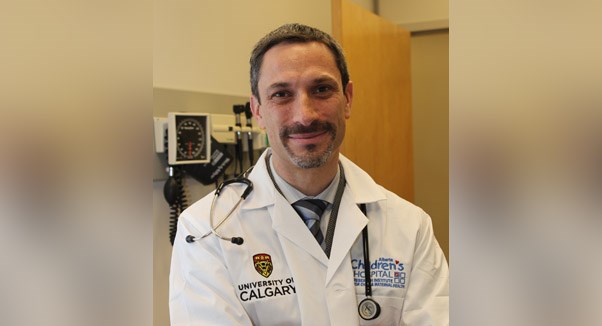A University of Calgary doctor will be looking at the long-term effects of Shiga toxin-producing E. coli (STEC) in children.
Dr. Stephen Freedman is hoping to learn more about the illness by following children connected to the daycare E. coli outbreak that occurred in the Calgary region, including Okotoks, in early September.
As a pediatric emergency medicine physician and professor, Freedman said his focus is on children with STEC infections. He has been working to improve care of those children for over a decade.
“We're hoping to learn a lot from this unfortunate event,” Freedman said.
Although more is known about children with severe E. coli infection, Freedman said there is very little long-term follow-up for children, especially those with mild infections.
“I am hoping that this long-term follow-up study can really shed light on potential risks that we identify or even better, hopefully, we don't identify any early signals of long-term concerns.”
Many children impacted by the daycare E. coli outbreak had minor or asymptomatic infections, he said.
“It’s important for us to know and understand, and really comprehend what potential risks and complications these children are at long term,” he said. “There really is very limited to no data in that regard.”
It’s generally been accepted that those with mild infections and no initial complications will not see any long-term impacts, he said.
“We really don't know that, we don't have the data to really say that with certainty.”
The daycare outbreak affected many children over a small area, providing researchers with groups of children that they generally wouldn’t know about, including children with asymptomatic or mild infections.
“We also know and have a group of children who tested negative, and so they were not even infected.”
Researchers can look for what Freedman called subtle differences in different areas among the groups of children.
This type of E. coli infection is not typically due to an outbreak, he said.
“It's due to what we call endemic disease, which is just kind of ongoing cases that occur due to random environmental exposures.”
Children with severe initial infections are at risk of chronic kidney disease, among other complications believed to be associated with the infection, he said.
“We really don't know whether there are early signs, signals or concerns in children with mild infection.”
Among children with milder infections, researchers will be able to look for potential complications in their early stages, he said.
The study is being conducted within a larger envelope of ongoing studies, Freedman said.
“We received funding for further research with the group of kids that were affected (in the Calgary-area outbreak).”
He said researchers plan to start reaching out to families impacted by the outbreak in the next two to three months, with the first follow-up appointments six months after the outbreak and then following the children for up to two years.
An E. coli outbreak was declared on Sept. 4 by Alberta Health Services (AHS) that affected numerous daycares in the Calgary area, including one in Okotoks.
“This was a very, very large outbreak,” Freedman said. “To the best of our knowledge, it is the largest outbreak among children less than five years of age ever reported.”
Eighteen daycares were closed by AHS and placed under outbreak status along with a shared kitchen that provided food for most of the affected daycares.
As of Oct. 31, AHS said 446 cases of E. coli were linked to the outbreak and over 1,500 children have been cleared to return to daycare.
“The number of cases that typically occur over many years, we saw them in approximately a two-week period in early September,” Freedman said.
The outbreak was declared over on Oct. 31, but AHS said work continues to support families and individuals in their recovery.
The central kitchen eyed as the source of the outbreak remains under a closure order.




